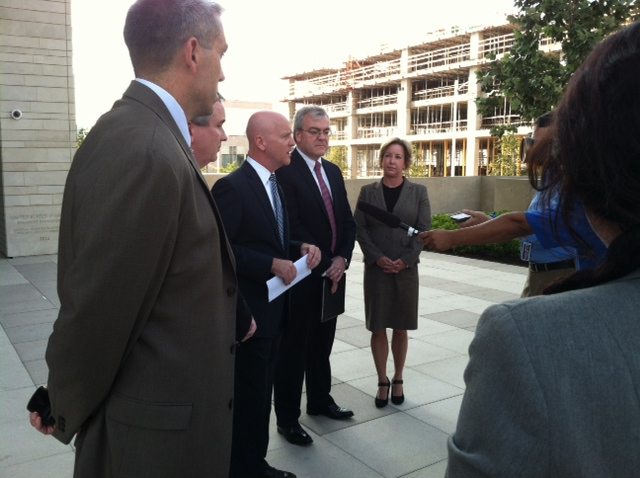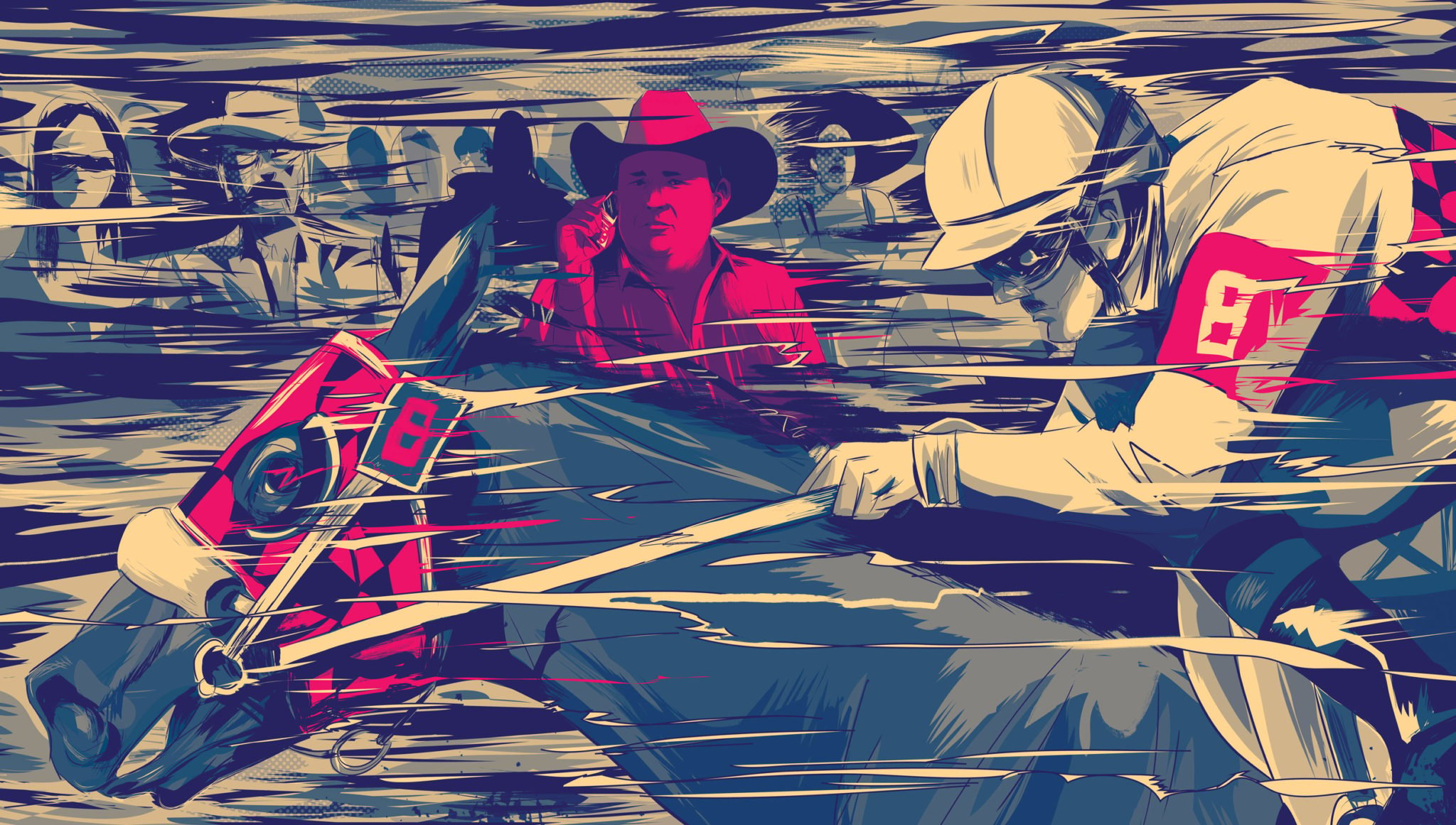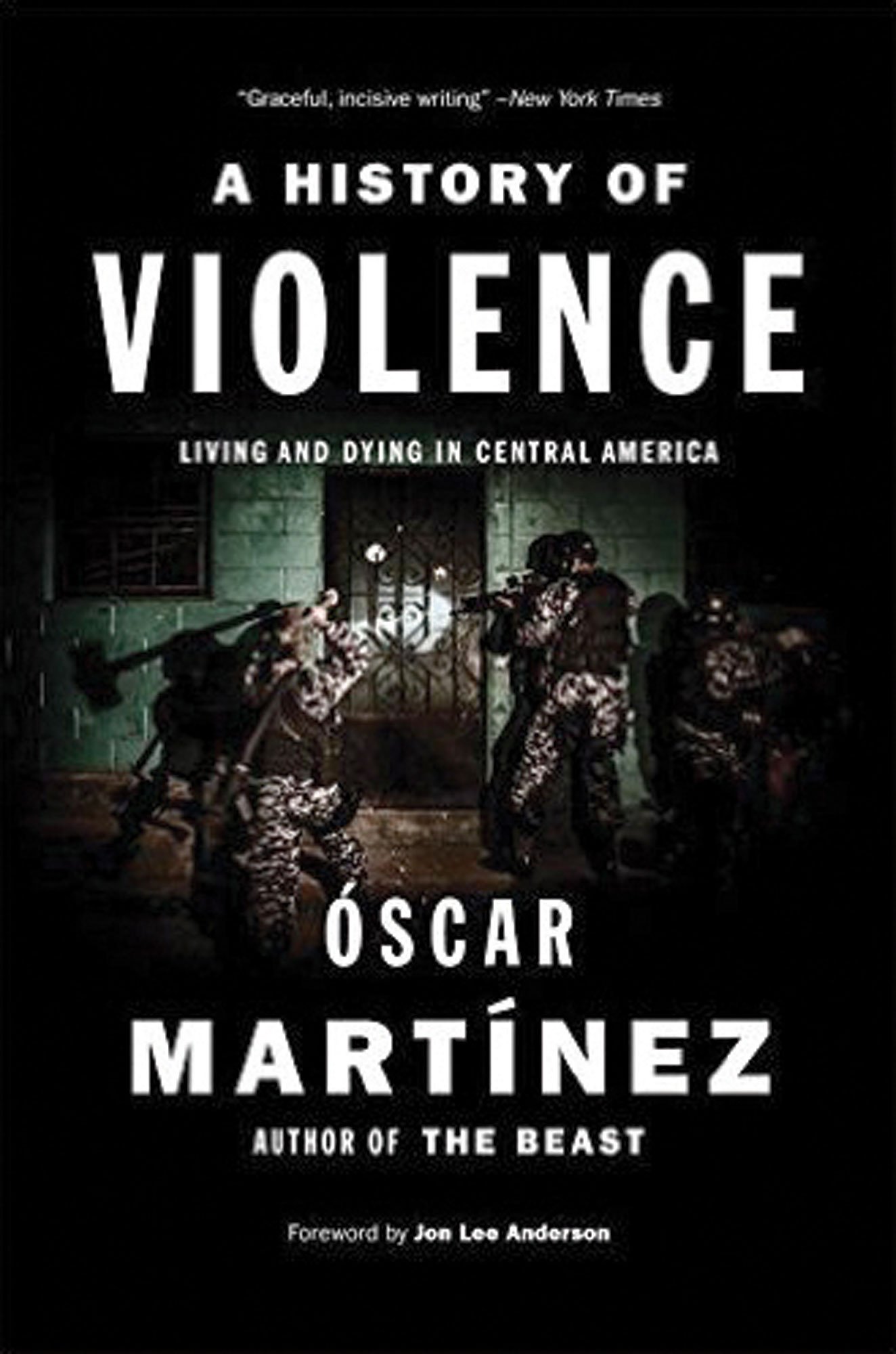
UPDATED: Brother of Zetas Cartel Boss Given Maximum Sentence

Above: U.S. Attorney Robert Pitman speaks to the press after the sentencing Thursday
(UPDATED 4:18 p.m. Friday) U.S. District Judge Sam Sparks continued the sentencing phase in the Zeta money laundering trial Friday morning. Austin Horse trainer Eusevio “Chevo” Huitron received the harshest sentence Friday of eight years for his participation in the money-laundering scheme. Zulema Treviño, wife of Jose Treviño, was sentenced to three years probation for money laundering and their 22-year old daughter Alexandra received two year’s probation after being found guilty last May on one count of failing to report a felony.
In court, U.S. Assistant Attorney Douglas Gardner said government agents had received information that some members of the Treviño family believed that Zulema and Alexandra were responsible for Jose’s guilty verdict. “I just want to say that Zulema provided no information to the government in this case,” Gardner said.
Alexandra wiped tears from her eyes as the judge sentenced her to two years probation. “She was just 17-years old when the conspiracy started,” her lawyer Frank Ivy told the judge. “And this will affect her for the rest of her life.”
(ORIGINAL STORY) Jose Treviño Morales, the brother of one of Mexico’s most feared drug cartel leaders, stood before a federal judge Thursday in Austin to plead for leniency in the sentencing phase of his trial. But in the end he received the maximum sentence of 20 years for money laundering.
The 46-year old Treviño was found guilty in May of leading a sophisticated scheme first devised by Los Zetas in 2008 to launder millions of dollars in drug money through the U.S. quarter horse racing industry. Federal prosecutors described the scheme as a “shell game by the defendants involving straw purchasers and transactions worth millions of dollars in New Mexico, Oklahoma, California and Texas to disguise the source drug money and make the proceeds from the sale of quarter horses or their race winnings appear legitimate.” Using these methods, Jose Treviño amassed nearly 500 horses, some of them the most expensive and coveted bloodlines in quarter horse racing.
On Thursday, Treviño, wearing a striped prison uniform and shackles, was allowed to address the courtroom before being sent to federal prison. He told United States District Judge Sam Sparks that he should not be judged by the actions of his brothers Miguel Angel Treviño Morales, the leader of Los Zetas, now incarcerated in Mexico, or Omar Treviño Morales who is still at large. “I am not a Zeta,” he said. “I’ve worked hard all my life.”
His attorney Kirk Lechtenberger said the 46-year old had been “touched with the same paint brush” as his brothers throughout his trial, which had hurt his chances of being given a lighter sentence. “Jose is not Miguel or Omar,” he said. “He’s no Zeta.”
But prosecutor Douglas Gardner said Jose Treviño, with his clean criminal record and U.S. citizenship, played a crucial leadership role in laundering millions in drug proceeds for Los Zetas by buying, breeding and selling expensive race horses in the United States. “He was the director of the U.S. subsidiary of Los Zetas,” Gardner said. “He took money covered in blood and the source of it was his relationship with his brothers.”
In June 2012, Treviño was indicted along with his wife and daughter and 15 other collaborators including wealthy Mexican businessman Francisco Colorado Cessa who also received a 20-year sentence Thursday for his role in the money laundering scheme. Colorado Cessa owned a petroleum services company in Veracruz Mexico called ADT that U.S. prosecutors say was used by Los Zetas as a front to make drug money appear legitimate when buying race horses in the United States.
“You were not just buying horses but also participating in their (Los Zetas) activities,” Judge Sparks said. “You decided to participate and you were smart enough to know better.”
Also on Thursday, Fernando Solis Garcia, 30, received a lesser sentence of 13 years for his role in the money laundering scheme. Garcia purchased horses at auctions in the United States and made sure that stables, trainers and other maintenance costs for the horses were paid on time.
U.S. Attorney Robert Pitman said he and other federal agencies that participated in the investigation were “drawing a line in the sand” when it came to Mexican cartel operations in the United States. “This prosecution and the sentences imposed today should send a clear message to those who would attempt to import their brand of corruption and violence into the United States.”
On Friday several other co-conspirators in the money laundering case will be sentenced including Treviño’s daughter and wife.


